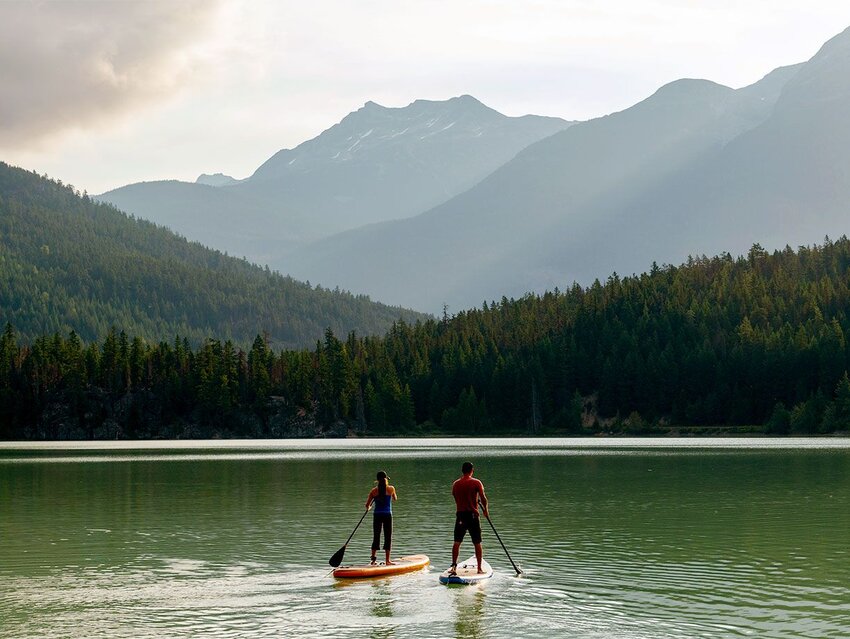Summer is the perfect time to try out a new hobby in the pool, lake, or ocean. Every year, vacationers take up kayaking, surfing, snorkeling, and scuba diving. But none of these are new activities — in fact, some of these sports date back thousands of years. Let’s explore the etymologies and origins of seven summertime water sports.
Canoeing
A canoe is a lightweight, narrow boat propelled by a handheld paddle. The word “canoe” (circa 1550s) comes from the Arawakan (Haiti) word canaoua and the Spanish canoa, but this style of boat has been around since at least 8200 BCE. While ancient canoes were carved from a single piece of wood, modern canoes are usually made from molded plastic or composite materials.
Kayaking
Kayaking is one of the most popular modern water sports. The word “kayak” originated in the mid-1700s with the Greenland Eskimo term qayaq, which means "small boat of skins." It’s a small, paddle-powered boat, like a canoe — but unlike a canoe, the paddle is double-sided. Originally used for hunting and travel, kayaks were used more for sports and exploring by the mid-1800s.
Snorkeling
When someone swims along the surface of the water using a dive mask, a breathing tube, and swim fins, they’re snorkeling. The breathing tube is typically called a “snorkel.” The word comes from the German term Schnorchel, which is an air shaft for submarines. In 1950, Honolulu Sporting Goods released a “swim pipe” and told customers to “try the human version of the submarine snorkel and be like a fish.” The term “snorkeling” caught on after that.
Scuba Diving
Though it’s technically an acronym, the word “scuba” isn’t usually written with all capital letters. It stands for “self-contained underwater breathing apparatus.” Humans have been trying to breathe underwater for centuries, and the first diving suits were designed in the early 1700s. However, people didn't go “scuba-diving” until the 1950s.
Surfing
The term “surfing” became popular in the 1950s, but the idea of riding a wave is much older. The activity existed as far back as 12th-century Polynesia, where it wasn’t just a sport but part of the religious and cultural landscape. The word “surf” originated on the coast of India in the 1680s and came from the term suffe, which means “a rushing sound.” In Hawaii, heʻe nalu (“wave sliding”) was observed in the 1760s.
Synchronized Swimming
Since ancient Rome, aquatic performers have delighted crowds by creating elaborate formations, shapes, and tricks in the water. The term “synchronized swimming” was coined at the 1934 World’s Fair in Chicago, when a group of 60 swimmers called the Modern Mermaids performed along to music. Previously called “water ballet,” synchronized swimming has been part of the Olympics since 1984 but was renamed “artistic swimming” in 2017.
Yachting
All yachts are boats, but not all boats are yachts. The term “yacht” comes from the Middle Low German jacht, meaning "ship for chasing.” At one point, yachts were used primarily to chase pirate ships. Later, European monarchs enjoyed relaxing and cruising on their pleasure yachts. Today, yachts are usually classified as sailing, motor, or luxury yachts.
Featured image credit: stockstudioX/ iStock

